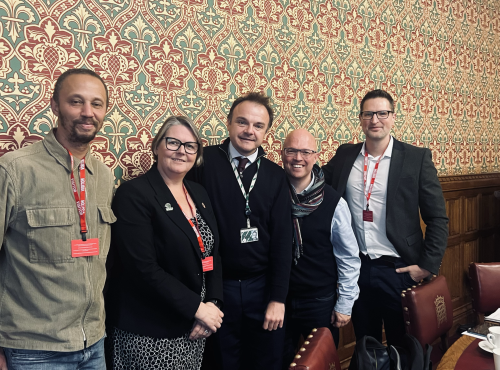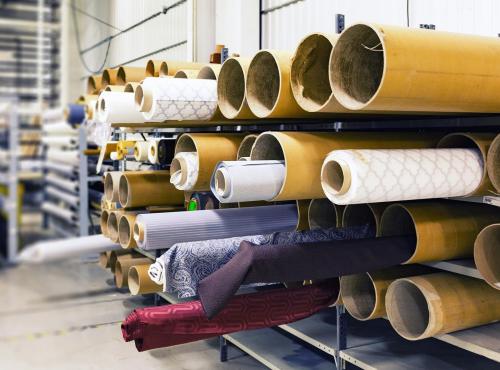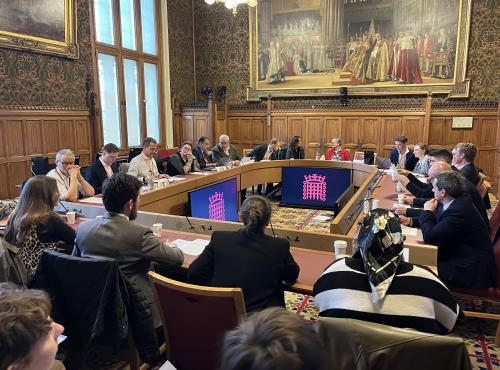COVID-19 - How the pandemic is impacting the Waste & Resources sector
With the ongoing coronavirus pandemic affecting every aspect of our lives including the waste we produce, there are several issues causing headaches for the Government and waste & resources sector. This blog explores some of the key challenges affecting the sector during these unprecedented times.
Rising to the current challenge…
With the UK firmly in lockdown, there have been significant changes to the composition of our waste arisings. This represents an increased pressure on waste and recycling management. Over 90% of Household Waste Recycling Centres (HWRCs) have now temporarily closed, and an increasing number of councils are suspending bulky item (50% of councils) and garden waste (30% of councils) collections. The Government has however prioritised recycling and residual waste collection, with around 90% and 100% of collections maintained respectively. The Association of Directors of Environment, Planning & Transport’s most recent weekly Local Authority survey also showed that core recycling and residual services are continuing largely unaffected.
…and anticipating future challenges
At the same time, the demand for materials, such as plastic, cardboard, or glass is likely to fluctuate. Whilst commercial demand may fall due to a fall in consumption, manufacturers’ demand may rise to unprecedented levels due to an increased need for hygienic packaging. With Government prioritising recycling and residual waste, any potential shortages in recycled materials, or increased demand for virgin materials should be limited. However, it is unclear how long the COVID-19 crisis will continue to last and supply and demand management may become more difficult.
Stockpiling – more food waste?
As a result of early stockpiling, data from Nielsen shows that consumers spent an extra £1.9 billion on groceries during the four weeks up to 21st March compared with 2019. There remains a possibility that as unnecessary stockpiled food perishes; increasing volumes of food waste will arise. Equally, with the hospitality sector closed, much of their existing food stocks will likely go to waste.
Backyard Burning
There is a risk that without a clear national message on why HWRCs are closing and how individuals waste production at home should change, some could take measures into their own hands. There has already been an increase in the illegal practice of ‘backyard burning’; fire crews in Wigan were called to at least 12 fires involving household waste burning last weekend, following the closure of the local recycling centre. Guidance would be welcome on how the public should adapt their activity at home to reflect the changes to waste services (e.g. avoiding specialised DIY, gardening that creates waste, excessive food wastage etc.).
More medical waste on its way
The UK needs to be ready to handle an increased volume of medical waste. Whilst the UK would not have dedicated capacity in the existing hazardous waste facilities for this scale of increase, municipal EfWs could also provide a safe and effective alternative for disposing of this medical waste.
The waste and recycling sector has welcomed the recognition of their key status by government. However challenges continue to arise, in ensuring that workers can physically distance, providing sufficient PPE, and managing with a reduced workforce. Last week the UK’s Waste Industry Safety and Health Forum (WISH) published draft advice document for sector, providing guidance particualrly on collection crews and handling of waste.
The full impact that the pandemic will have on the waste and resources sector will become clearer over the coming weeks. During this time, it remains crucial for government and industry, to work together to maintain a safe and environmentally sound operations amidst the coronavirus outbreak.
Here are some thoughts from the Industry:
Paco Hevia, Managing Director, Amey Waste Treatment:
"We are really proud of how everyone at Amey has rallied together to help keep the country running during this challenge and unprecedented time. In particular our frontline employees have been absolutely fantastic. I am sure we have all been thinking of our refuse and recycling colleagues along with other keyworkers when thinking about the tremendous efforts people are making to keep the country running. Meanwhile, we are doing everything possible in partnership with our clients to ensure refuse and recycling services continue to be delivered, whatever the challenges may be."
Dougie Sutherland, CEO, Cory Energy
“It's right that those in the waste management have been designated key workers by the Government. Alongside hospital staff and emergency workers, the work that Cory employees carry out helps society to function at this time of crisis. We are working closely with our local authority partners, customers and suppliers to ensure services are maintained. We have already made a number of changes to our day to day operations to ensure our people and other key workers on site are kept as safe as possible, and can continue to provide their essential services to London. I'd like to thank my colleagues for rising to the challenge.”
Jacob Hayler, Executive Director of the Environmental Services Association (ESA):
“These are certainly challenging times for the recycling and waste operatives serving on the frontline of the coronavirus crisis and we owe them a debt of gratitude as they continue to prevent waste piling up in our homes and streets. New guidance drawn up by WISH, in consultation with the industry, will help employers keep their staff safe while they continue in this vital work, and ESA members have been working hard, with Government, the devolved administrations and the regulatory authorities, to address an extensive list of solutions to anticipated issues associated with the potential loss of up to half the workforce at any one time.”
Julie Fourcade, Head of External Affairs, FCC Environment:
"At FCC Environment, we are working hard to implement updated and new measures to ensure the health and safety of our employees, clients and the communities in which we work. We are scaling up our domestic waste collections, continuing to monitor the latest guidance from Government closely and are frequently reviewing our protocols during these challenging times. We are all working hard to ensure that essential waste management services continue throughout the health crisis.”
Neil Grundon, Deputy Chairman, Grundon Waste Management:
“I have been overwhelmed by how quickly and diligently our industry and my colleagues within Grundon have stepped up to meet the challenges our country is currently facing. As we all come to terms with the changes to our daily lives and routines imposed by the global COVID-19 pandemic our expert teams have stepped up admirably to support many of our customers whose essential services are helping to tackle the Coronavirus pandemic, keep our nation safe and functioning as best we can. We continue to provide a vital service to our NHS, the food manufacturing and distribution sector and where support is needed to local authorities.”
Dr Adam Read, External Affairs Director, SUEZ recycling and recovery UK:
“Our industry is providing a critical service for our country, with our employees doing the sector proud every day as designated key workers. We continue to work closely with government, the ESA and our wider industry on the best practice initiatives which are critical in these current times, from social distancing to secondments of employees to other local authority services within similar geographies. Even in this uncertain period, we are learning and developing new operational best practice which will be important for our industry in a few months’ time as we come out of this phase of the pandemic.”
Richard Kirkman, Head of Covid-19 Response and Chief Technology Officer, Veolia UK:
"Throughout this uniquely challenging time Veolia's teams will continue to provide essential services that will help protect communities and public health. We take the health and safety of our employees and the communities we serve as our top priority, and have a carefully planned approach to managing our operations during the pandemic. Working within the government and our own operational guidelines we have taken the necessary steps to ensure the health of our workforce, and members of the public."



